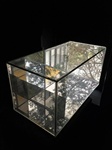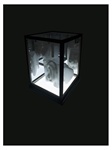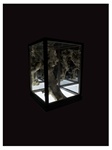Lungo Po Art Group
Guo Liang
1984
Born in Beijing
2008
Graduated from the Mechanical Engineering Department of Beijing University of
Technology with a bachelor´s degree
2014
Graduated from the Painting Department of Academy of Fine Arts Albertina of
Turin with a bachelor´s degree
2017
Graduated from the Painting Department of Academy of Fine Arts Albertina of
Turin with a master´s degree
Currently
works and lives in Beijing and Turin.
Wang Xueyi
1985
Born in Beijing
2008
Graduated from the Aeronautical Engineering Department of Imperial College
London with a bachelor´s degree
2016
Graduated from the Visual Arts Department of Emily Carr University with a
bachelor´s degree
Currently
works and lives in Beijing and Vancouver.
Li Geyin
1987
Born in Beijing
2009
Graduated from the Industrial Design Department of Beijing University of
Technology with a bachelor´s degree
2013
Graduated from the Printmaking Department of Academy of Fine Arts Albertina of
Turin with a master´s degree
Currently
works and lives in Beijing
Zhang Zhe
1987
Born in Beijing
2009
Graduated from the Industrial Design Department of Beijing University of
Technology with a bachelor´s degree
2014
Graduated from the Painting Department of Academy of Fine Arts Albertina of
Turin with a master´s degree
Currently
works and lives in Beijing
SOLO EXHIBITION
2016
SKIMMING
OVER THE SURFACE, Mingtai Space, Beijing, China.
2015
NO ONE KNOWS WHO’S
AROUND, White House Space, Beijing 798, China






